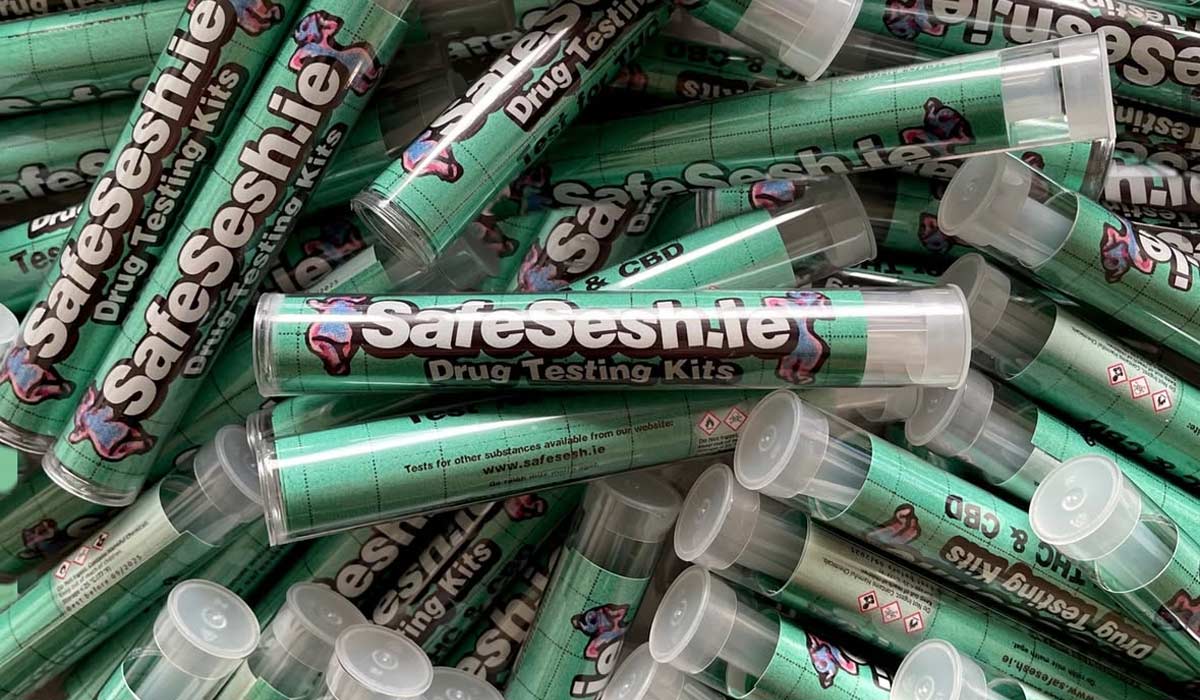Health
Safe Sesh Offers Drug Testing Kits for Festival-Goers

As festival season approaches, the demand for drug safety has led to the introduction of at-home drug testing kits by the company Safe Sesh. These kits aim to provide a harm reduction tool for festival attendees who may choose to use illegal substances. The initiative seeks to empower individuals to verify the contents of drugs before consumption, potentially preventing dangerous reactions.
According to Liam, the founder of Safe Sesh, “People are going to take drugs, whether you like it or not. So if a simple test can prevent someone from ingesting something dangerous, then it’s worth it.” The company emphasizes that while they do not endorse drug use, they recognize its prevalence at events and aim to promote safety instead.
The testing process is straightforward. Users take a sample of the drug they plan to consume and dip it into a re-agent liquid. The resulting color change indicates the presence of specific substances. For instance, a dark purple color signals the presence of MDMA, while a red color could indicate amphetamines, and green suggests the presence of 2CB, a potent hallucinogen. While the tests are not infallible, they provide a level of assurance for users who may be uncertain about the contents of their drugs.
Understanding the Risks and Benefits
The use of testing kits aligns with a growing movement toward harm reduction at festivals. Traditionally, festival-goers relied on online resources like pill reports, which often lack reliability. “No one I knew tested their drugs,” Liam explained. “We would rely on reviews, but the same pill could have been pressed by different people with unknown ingredients.”
Safe Sesh acknowledges that while they cannot guarantee absolute safety, their kits offer a proactive approach. Liam pointed out that even when harm reduction tents at festivals warn of dangerous batches, the variability in drug sourcing makes it difficult for attendees to know if their specific sample is contaminated. “You’re testing exactly what you’ll be consuming,” he noted. This self-testing empowers users to make informed decisions.
While the ideal scenario would be the absence of drug use altogether, Liam understands the reality of festival culture. He has witnessed the consequences of unsafe drug consumption, including severe medical emergencies. “I know people who’ve ended up in medical tents and in hospitals,” he said. “It’s definitely good to be as careful as you possibly can.”
Preparing for a Safe Festival Experience
The Safe Sesh initiative comes at a time when safety at festivals is under heightened scrutiny. As large gatherings resume after pandemic-related restrictions, the emphasis on health and safety continues to evolve. With the potential for thousands of attendees at events, the need for responsible measures is critical.
Safe Sesh’s testing kits are intended for individuals who wish to ensure that their drug use, if chosen, is as safe as possible. By providing users with a simple, accessible method of testing, the company aims to foster a culture of responsibility and safety within the festival community.
In essence, while the debate over drug use at festivals remains contentious, initiatives like Safe Sesh serve to address the realities of the situation. By promoting harm reduction, they contribute to a safer environment for all attendees, underscoring the importance of informed choices in potentially hazardous situations.
-

 Top Stories3 months ago
Top Stories3 months agoTributes Surge for 9-Year-Old Leon Briody After Cancer Battle
-

 Entertainment4 months ago
Entertainment4 months agoAimee Osbourne Joins Family for Emotional Tribute to Ozzy
-

 Politics4 months ago
Politics4 months agoDanny Healy-Rae Considers Complaint After Altercation with Garda
-

 Top Stories4 months ago
Top Stories4 months agoIreland Enjoys Summer Heat as Hurricane Erin Approaches Atlantic
-

 World5 months ago
World5 months agoHawaii Commemorates 80 Years Since Hiroshima Bombing with Ceremony
-

 Top Stories3 months ago
Top Stories3 months agoNewcastle West Woman Patricia Foley Found Safe After Urgent Search
-

 Top Stories5 months ago
Top Stories5 months agoFianna Fáil TDs Urgently Consider Maire Geoghegan-Quinn for Presidency
-

 World5 months ago
World5 months agoCouple Convicted of Murdering Two-Year-Old Grandson in Wales
-

 World5 months ago
World5 months agoGaza Aid Distribution Tragedy: 20 Killed Amid Ongoing Violence
-

 World5 months ago
World5 months agoAristocrat Constance Marten and Partner Convicted of Infant Murder
-

 Top Stories4 months ago
Top Stories4 months agoClimbing Errigal: A Must-Do Summer Adventure in Donegal
-

 Top Stories4 months ago
Top Stories4 months agoHike Donegal’s Errigal Mountain NOW for Unforgettable Summer Views









